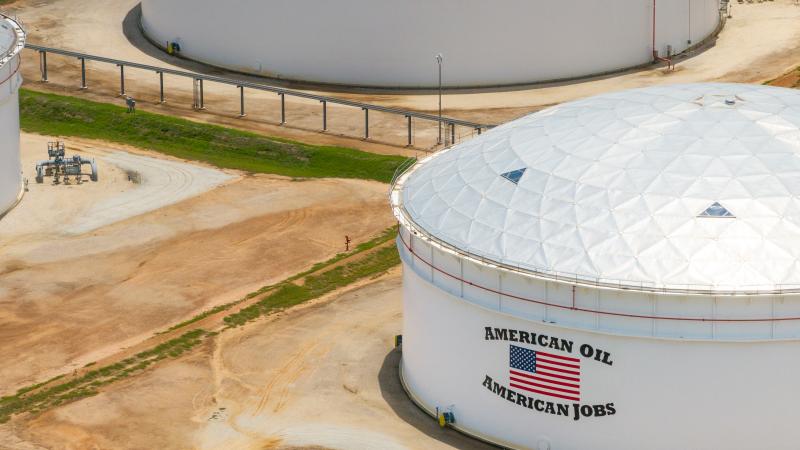Texas oil and natural gas industry broke multiple records in 2023
Texas refineries also set two new processing records in 2023. Last July, Texas refineries processed a record 5.6 million barrels of crude oil per day and last year, Texas produced and exported a record amount of natural gas liquids (NGLs) with refineries also using record amounts of NGLs.
The Texas oil and natural gas industry broke records all around in fiscal 2023. It smashed all previous records it broke in 2022 in all categories, according to an analysis published by the Texas Oil & Gas Association in its Annual Energy & Economic Impact Report.
The industry reported the highest ever totals in production, exports, refining outcomes, crude oil supply, and paid the largest tax revenue contribution in state history of more than $26.3 billion last year.
Texas hit production records in six out of 12 months last year, with October reaching the highest monthly oil production on record.
The Texas industry produced as much as 5.6 million barrels per day of crude oil in October 2023, which represented more than 42% of the national total that month.
Natural gas marketed production also reached record highs in seven of 12 months in 2023. Last October, the industry eclipsed one trillion cubic feet in a single month for the first time in history, accounting for nearly 30% of the national production total.
Texas refineries also set two new processing records in 2023. Last July, Texas refineries processed a record 5.6 million barrels of crude oil per day and last year, Texas produced and exported a record amount of natural gas liquids (NGLs) with refineries also using record amounts of NGLs.
The United States is the top producer of oil and natural gas, led by Texas, which is also leading in emissions reductions, as noted by the Texas Methane & Flaring Coalition, Texans for Natural Gas, and The Environmental Partnership, The Center Square has reported.
“No one produces, transports, and refines oil and natural gas with the same commitment to safety and protecting the environment as American producers,” TXOGA president Todd Staples said. “Industry-led initiatives ... are dramatically reducing emissions and achieving environmental gains unseen anywhere else in the world.”
Texas production records have also contributed to global stability, he notes, echoing a conclusion published by Texans for Natural Gas, which found that Texas “provided a lifeline” to Europe after the energy market was destabilized by “green energy” policies and the Russian-Ukrainian conflict.
“With so much uncertainty in the world, the need for reliable, responsibly produced energy from a stable trading partner has never been more crucial,” Staples said. “Texas is that trade partner. Our producers, pipelines, refineries, and exporters answer the call to alleviate the global energy crisis, made worse by war.”
According to the TXOGA analysis, Texas’ liquified natural gas (LNG) exports to Europe totaled 6.8 billion cubic feet per day in fiscal 2023, more than double the exports of 2.8 billion cubic feet per day (bcf/d) in 2021.
Last October also saw another record high for LNG exports of 8.1 bcf/d – after the U.S. was already the top exporter of LNG in the first half of 2023, The Center Square reported.
While the Biden administration is attempting to stifle LNG exports, Staples and others in the Texas industry have argued, reliable energy from Texas helps American allies be less dependent on hostile nations for energy sources.
Production records last year, led by west Texas in the Permian Basin, were unprecedented, The Center Square reported.
Staples argues they “are not guaranteed. We cannot take for granted that this industry can continue to rewrite its record book in the face of federal policies blatantly designed to undermine progress. Delayed permits, canceled pipeline projects, closed and delayed federal leasing programs and incoherent regulations hurt American consumers and stifle our ability to deliver energy freedom and security around the world.”
At the state level, he said there is need for greater infrastructure, especially in the Permian Basin, including more pipelines and cost-effective electrical power generation.
In 2023, the Texas oil and natural gas industry employed more than 480,000 workers earning an average of $124,000 a year. Each of these jobs, TXOGA estimates, “generates approximately two more jobs, with more than 1.4 million total jobs supported across the Texas economy. Some economists say this number could be as high as three more jobs supported and total over 2 million jobs in Texas.”
“This type of unmatched, repeat economic performance does not happen by accident,” Staples said. “Success is the result of non-stop industry innovation, investment and operational efficiencies that shattered a string of oil and natural gas production, supply, refining and export records last year – all while achieving world-leading environmental progress.”
















